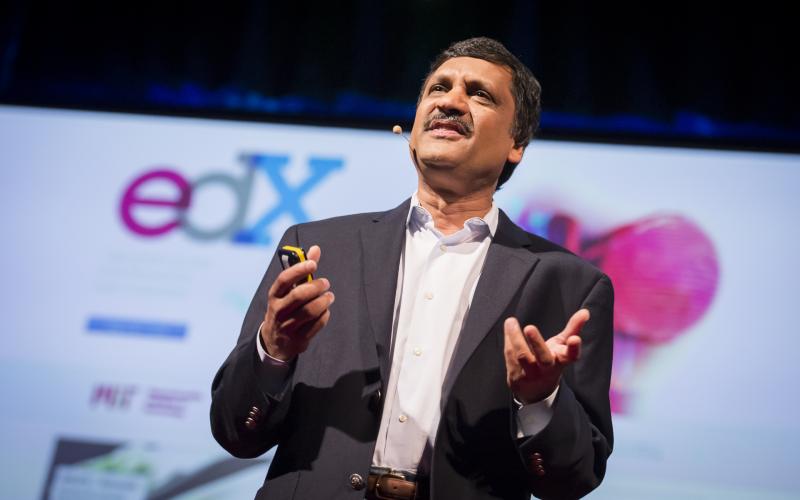
EdX president Anant Agarwal speaks at the TEDx conference in Edinburgh, Scotland, in June 2013. (Flickr)
A new MIT-Harvard study released Wednesday finds nearly 40 percent of learners who take open online courses are teachers. That finding has researchers wondering whether they can better design online courses once predicted to upend students' experience to meet teachers' needs.
The study describes two years of open online courses launched on MIT and Harvard's non-profit online initiative, edX. It explores 68 certificate courses and 1.7 million participants.
"We know who these people are," said Harvard Associate Professor Andrew Ho, co-author of the study.
"We imagine a college classroom with a bunch of young, uncertified, invested - at least financially - undergraduate students. All of us sort of had that picture in our mind for [massive open online courses] when they launched," Ho said.
But if you imagine online learners sitting in a classroom, Ho points out that they don't look like your traditional college student.
"If you're standing in this classroom with 100 MOOC participants, you immediately notice that they're older and more experienced," Ho explained. "Seventy of them already have bachelors degrees. Twenty of them are over 40. Six are in their 50s and four are in their sixties."
Related: Despite Low Completion Rates, Harvard And MIT Say MOOCs Work
Thirty nine percent of 200,000 participants who responded to a survey self-identified as a current or former teacher. Strong participation by teachers, Ho said, suggests that even those who are not interested in certification may still make productive use of open online courses.
"The diversity of audiences is the revealed promise of these open online courses," Ho said. "What we could have done is chase certification rates by excluding people. The easiest way to increase the certification rate is to act more like a conventional school."
While these online courses have failed to revolutionize higher education, the study concludes the fact that they have not yet delivered on this promise should not undermine their benefits.
The study also finds that academic areas matter when it comes to participation. For example, participation rates in computer science courses were nearly four times higher than courses in the humanities and social sciences.
Read the full report: Two Years of Open Online Courses
Last year, WGBH's On Campus reported that despite low completion rates researchers at MIT and Harvard insist that online courses still have value:










